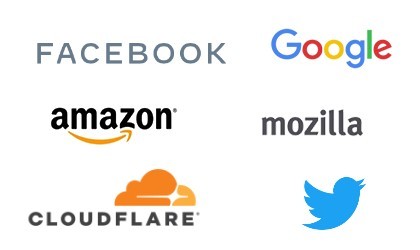 In recent years many countries around the world have tightened their copyright laws to curb the threat of online piracy.
In recent years many countries around the world have tightened their copyright laws to curb the threat of online piracy.
These new regulations aim to help copyright holders, often by creating new obligations and restrictions for online service providers that host, link to, or just pass on infringing material.
The European Union, for example, approved the EU Copyright Directive which is currently being implemented by member states. This includes “Article 17” which requires many online services to license content from copyright holders. If that is not possible, online services should ensure that infringing content is taken down and not re-uploaded to their services.
Hostile Environment
Copyright holders are happy with the legislation but many tech companies see it as a threat. And it’s not the only copyright-related change they are concerned about. This week, the Computer & Communications Industry Association (CCIA) informed the US Trade Representative that big tech is facing an increasingly hostile environment abroad.
“U.S. firms operating as online intermediaries face an increasingly hostile environment in a variety of international markets. This impedes U.S. Internet companies from expanding services abroad,” CCIA writes.
The industry group, which represents tech giants including Amazon, Cloudflare, Facebook and Google, shared its concerns in response to the USTR’s Special 301 Report inquiry. This annual report aims to highlight copyright-related barriers US companies face in other countries.
Traditionally, the Special 301 Report has been used to lobby for stricter copyright regulation. However, the tech companies argue that some countries have gone too far.
“These adverse conditions manifest through court decisions and new copyright regulations that depart from global norms on intermediary responsibility. In the case of the EU’s copyright reform, the motivation to target primarily U.S. firms is clear,” CCIA writes.
EU’s ‘Upload Filters’
The EU’s Article 17 is mentioned as one of the major stumbling blocks. The new legislation creates “unreasonable” and “technically impractical” obligations that will make it harder for US companies to operate in Europe, CCIA warns. This includes potential upload filters.
“Online services will likely have to use filtering technologies in order to comply with the requirements under Article 17. While Article 17 avoids the word ‘filter’, practically speaking, content-based filtering will be required if a service is to have any hope of achieving compliance. This upends longstanding global norms on intermediary liability,” CCIA writes.
These requirements go above and beyond the DMCA-style notice-and-takedown policies that were the international standard over the past two decades. If U.S. companies want to avoid liability going forward, they will have to switch to a more restrictive notice-and-staydown approach instead.
Russia’s Mirrors Law
The EU Copyright Directive is not the only ‘hostile’ copyright change CCIA highlights. The group is also concerned about Russia’s ‘Mirrors Law‘ that requires search engines to remove pirate sites and their mirrors from their results within 24 hours after being notified.
This ‘problematic’ law was also highlighted in a separate USTR submission from the Internet Association, which also represents Google and other big tech companies. The group warns that the Mirrors Law leads to overbroad removal of content that would remain online in the US.
“In practice, this law has resulted in overbroad removal and delisting requests for general-purpose websites that would not be subject to removal under Section 512 of the Copyright Act or other parts of U.S. copyright law,” the Internet Association writes.
“As USTR has noted elsewhere, 24 hours is an insufficient amount of time for service providers to review these types of requests. Also, the principle of removing entire websites that include a proportionally minor amount of potentially infringing content was squarely rejected by the U.S. Congress during the debate over the Stop Online Piracy Act in the 112th Congress.”
USTR Should Recognize Liability Concerns
Both industry groups highlight a variety of other smaller and larger copyright-related obstacles, including blocking requirements and increased liability in countries such as Brazil, Spain, Greece and India. These often are much stricter than in the US, which is seen as a problem.
The Internet Association and CCIA urge the US Government to hear their concerns and use the Special 301 Report to highlight these ‘hostile’ environments that hurt innovation.
“In the 2021 Special 301 Report, USTR should recognize the concerns of U.S. Internet services who not only hold intellectual property and value its protection, but also rely on innovation-enabling provisions that reflect the digital age,” CCIA concludes.
—
A copy of CCIA’s submission for the USTR’s Special 301 Report is available here (pdf). The Internet Association’s submission can be found here (pdf)





